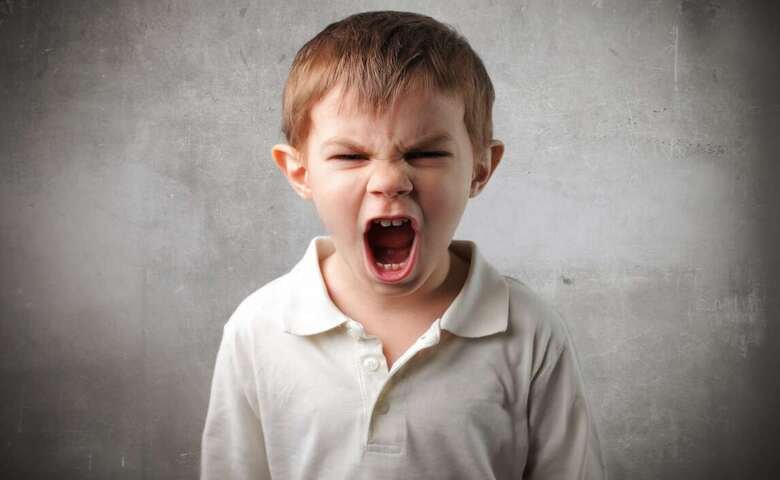Children naturally experience anger as they deal with the difficulties of life. However, both parents and kids may have concerns if an individual’s anger is unchecked or manifests frequently. As parents, it is crucial to comprehend the root reasons of children’s anger and arm ourselves with practical techniques for assisting our kids in controlling and expressing their anger in constructive ways. In this article, we will discuss useful methods of dealing with anger in your child that parents may use while encouraging emotional control, empathy, and constructive dispute resolution.
Table of Contents
Dealing with Anger in Your Child
When dealing with anger in your child, it is crucial to create a safe and supportive environment where they can express their emotions without judgment, while also teaching them healthy coping mechanisms and effective communication skills.
To effectively deal with anger in your child, encourage them to identify and label their emotions, teach them relaxation techniques, and promote problem-solving skills, fostering their emotional regulation and overall well-being.
Understanding and addressing the underlying causes of anger, setting clear boundaries, and seeking professional support when necessary are essential strategies of dealing with anger in your child and promote their emotional growth and resilience.
Cultivate Emotional Awareness
Encouraging children to recognize and understand their emotions is the first step in dealing with anger. Teach them to identify and label their feelings, including anger, and validate their emotions without judgment. Create a safe and open environment where they can express their anger without fear of punishment or rejection. By developing emotional awareness, children can gain insight into the triggers and patterns of their anger, enabling them to manage it more effectively.
Teach Healthy Coping Mechanisms
Providing children with healthy coping mechanisms is crucial in managing anger. Teach them various techniques such as deep breathing exercises, counting to ten, or taking a break to cool down. Encourage them to engage in physical activities like running, drawing, or writing in a journal to release their anger constructively. Additionally, promote relaxation techniques like mindfulness or guided imagery to help them calm their emotions. By equipping children with a toolkit of coping strategies, they can choose healthy outlets for their anger instead of resorting to aggressive behavior.
Model and Encourage Effective Communication
Effective communication is essential for children to express their anger in a constructive manner. Teach them how to articulate their feelings and needs using “I” statements instead of resorting to shouting or aggressive behavior. Encourage active listening skills and empathy, helping them understand the perspectives of others. By modeling respectful communication within the family, parents provide children with a positive example to follow, fostering healthy conflict resolution and reducing anger triggers.
Set Clear Boundaries and Consistent Discipline
Establishing clear boundaries and consistent discipline helps children feel secure and reduces feelings of frustration that may lead to anger. Clearly communicate expectations, rules, and consequences, ensuring they are age-appropriate and reasonable. Implement discipline techniques that focus on teaching and guiding rather than punishment. Encourage problem-solving and responsibility, helping children understand the consequences of their actions. By providing a structured and consistent environment, parents can minimize anger triggers and promote self-control.
Seek Professional Support if Needed
In some cases, anger in children may be indicative of underlying emotional or behavioral issues that require professional intervention. If a child’s anger becomes excessive, prolonged, or significantly interferes with their daily functioning, seeking the assistance of a pediatrician, therapist, or counselor can be beneficial. These professionals can provide specialized guidance, assess any underlying concerns, and offer appropriate strategies for managing anger.
Causes of Anger in Children

Understanding the causes of anger in children is vital for parents and caregivers to provide appropriate support and guidance. Developmental factors, environmental triggers, emotional awareness and communication, unrealistic expectations, stress, and difficulties in emotional regulation and coping skills all contribute to anger in children. By identifying these causes, parents can tailor their approach to helping children manage their anger effectively. In this article, we will explore common causes of anger in children, shedding light on the underlying factors that influence their emotional responses.
Developmental Factors: Children’s ability to regulate their emotions is influenced by their stage of development. In early childhood, limited language skills and undeveloped impulse control can lead to frustration and anger. As children grow, they may experience anger related to increased independence, asserting their autonomy, or struggling with peer relationships. Understanding and appreciating these developmental factors can help parents provide appropriate guidance and support during various stages of their child’s growth.
Environmental Triggers: The environment in which children grow and interact plays a significant role in their emotional well-being. Stressful or chaotic family environments, inconsistent discipline, exposure to violence or conflict, and disruptions in routines can contribute to feelings of anger and frustration. Identifying and addressing these environmental triggers can help create a more supportive and nurturing environment for children to manage their emotions effectively.
Emotional Awareness and Communication: Children may struggle with anger due to a lack of emotional awareness and communication skills. They might find it challenging to identify and express their emotions, leading to frustration and outbursts. Limited vocabulary or difficulty understanding complex emotions can contribute to this challenge. By promoting emotional awareness, teaching children to label and express their emotions, and fostering effective communication, parents can empower them to manage their anger more effectively.
Unrealistic Expectations and Stress: High expectations, whether self-imposed or imposed by others, can be a significant source of anger in children. Pressure to excel academically, perform in extracurricular activities, or meet societal standards can create stress and frustration. Additionally, transitions such as moving to a new school, divorce, or the arrival of a new sibling can trigger anger as children adjust to change. Recognizing and managing these stressors, setting realistic expectations, and providing support during challenging transitions can help alleviate anger in children.
Emotional Regulation and Coping Skills: Children who lack developed emotional regulation skills may struggle with managing anger effectively. Difficulties in managing frustration, impulse control, and problem-solving skills can contribute to intense anger outbursts. Teaching children coping strategies, such as deep breathing exercises, mindfulness techniques, or engaging in physical activities, can equip them with tools to regulate their emotions and manage anger more constructively.
Symptoms of Increasing Anger in Children

Recognizing the symptoms of increasing anger in children is crucial for parents and caregivers to intervene and provide appropriate support. While the intensity and expression of anger may vary among children, some common symptoms of escalating anger include:
Aggressive Behavior: Children may exhibit increased aggression, such as hitting, kicking, biting, or throwing objects when their anger intensifies. They may engage in physical confrontations with peers or siblings more frequently.
Verbal Outbursts: Heightened anger in children can lead to verbal outbursts characterized by yelling, screaming, or using harsh and disrespectful language towards others. They may engage in name-calling or make threats.
Physical Symptoms: Physical manifestations of anger can include a racing heart, flushed face, clenched fists, increased breathing rate, and tense muscles. These physical symptoms often accompany emotional distress and indicate an escalation of anger.
Withdrawal and Isolation: Some children may exhibit signs of anger by withdrawing from social interactions. They may isolate themselves, refuse to participate in activities, or display a lack of interest in previously enjoyed hobbies or relationships.
Irritability and Frustration: Children experiencing increasing anger may become easily irritated or frustrated by even minor setbacks or challenges. They may display a shorter fuse, with their tolerance for frustration diminishing rapidly.
Disruptive Behavior: Anger can manifest in disruptive behavior, such as defiance, refusal to follow instructions, or challenging authority figures. Children may become oppositional, resisting rules and engaging in non-compliant behavior.
Emotional Intensity: Children with escalating anger may display heightened emotional intensity, including frequent mood swings, irritability, or emotional outbursts over seemingly minor triggers. They may struggle to regulate their emotions, leading to more frequent and intense displays of anger.
Difficulty Concentrating: Increasing anger can interfere with a child’s ability to concentrate and focus on tasks. They may become easily distracted or find it challenging to complete assignments or participate in structured activities due to their heightened emotional state.
Physical Agitation: Children experiencing escalating anger may display signs of restlessness, pacing, or fidgeting. They may have difficulty sitting still or may engage in repetitive movements as a means of releasing their pent-up energy.
Difficulty Sleeping: Intense anger can disrupt a child’s sleep patterns. They may experience difficulties falling asleep, staying asleep, or have frequent nightmares related to their anger or unresolved emotional issues.
While these symptoms indicate increasing anger in children, individual experiences may vary. It is essential to consider a child’s overall behavior and seek professional assistance if anger-related issues persist, significantly impact daily functioning, or interfere with their overall well-being.
Conclusion:
Dealing with anger in your child requires patience, understanding, and effective strategies. By cultivating emotional awareness, teaching healthy coping mechanisms, and promoting effective communication, parents can empower their children to manage and express anger in a healthy and constructive manner. Setting clear boundaries and consistent discipline provides structure and reduces anger triggers, while seeking professional support when necessary ensures that children receive the help they need. Remember, managing anger is a gradual process, and it is essential to approach it with empathy, compassion, and open communication. By doing so, parents can help their children develop emotional regulation skills, enhance their interpersonal relationships, and navigate life’s challenges with resilience and self-control.
Also Read: Some Parenting Mistakes That Hurt Children’s Self-Esteem
Image credit: Yandex.com















